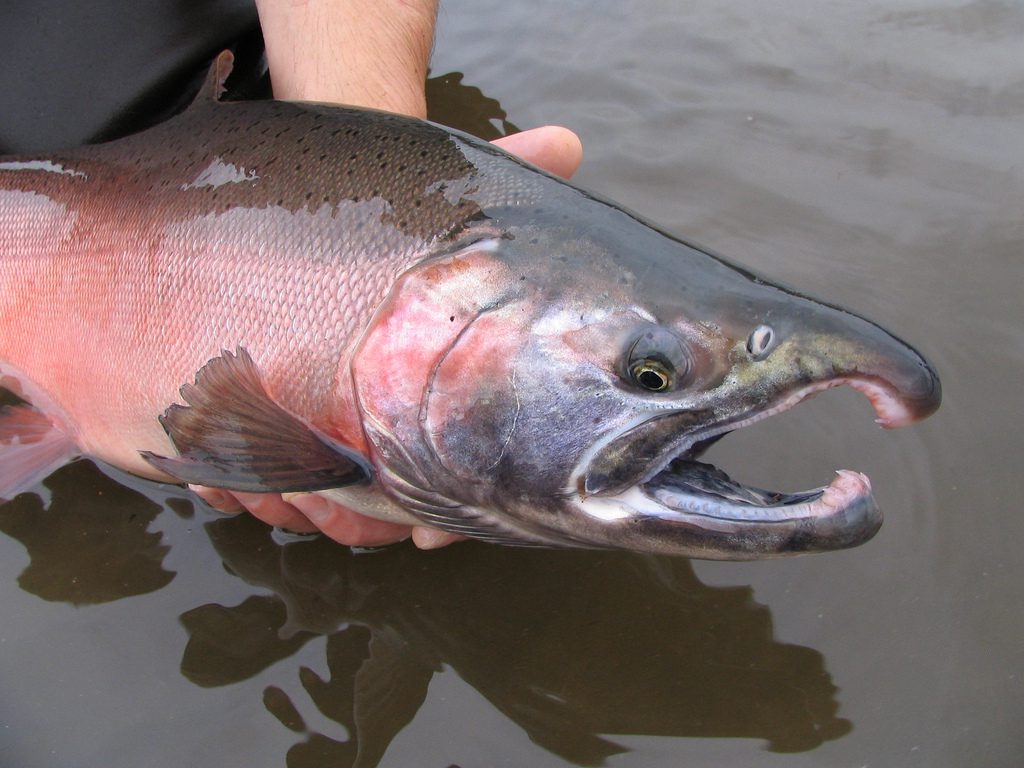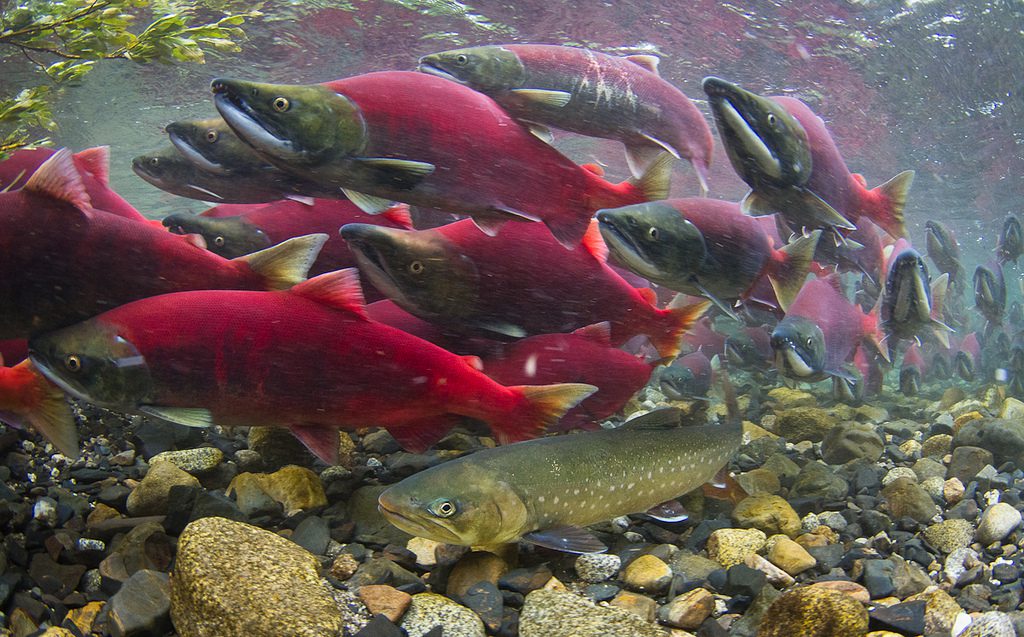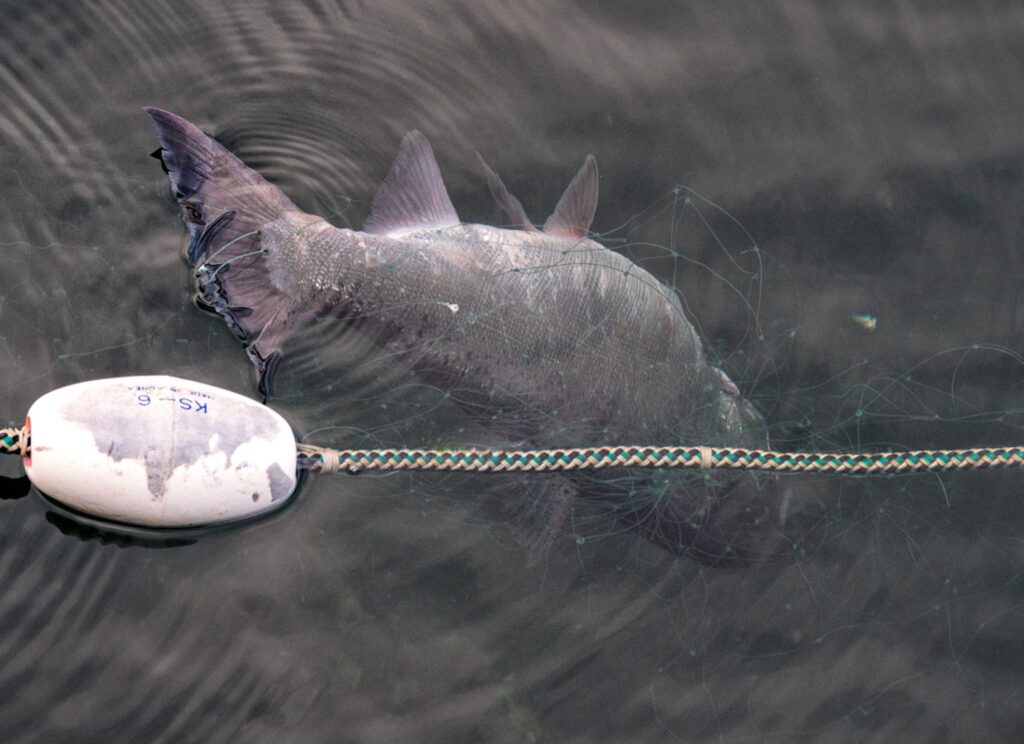Climate change and food security were the focus of much of the conversation about rural areas at this year’s Alaska Federation of Natives convention.
But this year’s AFN convention was also focused on celebration for Katie John, the Athabascan woman whose fight to use her family’s traditional subsistence fishing grounds along the Copper River was at the heart of nearly three decades of litigation that focused on state or federal supremacy along Alaska rivers—and, by extension, the priority of subsistence users on those waterways throughout the state.
The U.S. Supreme Court refused to hear the state’s appeal in the Katie John case back in March, effectively closing the case, but the victory for subsistence users that was just shy of 30 years in the making didn’t fade in the intervening months, and a sense of triumph was pervasive throughout this year’s convention.
“We [in the Bering Strait/Norton Sound] have been just as involved as any other region in the Katie John issue over the years,” said Robert Keith, chair of regional nonprofit Kawerak. “So it’s a bit of a celebratory mood for us in our region.”
Despite the legal victory, Keith and others at AFN said they know issues remain; rapid environmental changes like rising sea levels, coastal erosion, and thawing permafrost are growing burdens on subsistence users who rely on healthy ecosystems, according to AFN’s committee on climate change.
Those burdens more acutely felt in Alaska than elsewhere in the country, said Fran Ulmer, a former state legislator, Juneau mayor, and lieutenant governor, who now heads the nation’s Arctic Research Commission. Ulmer said the committee is emphasizing local action when state and federal bodies move too slowly.
“Communities have to be better prepared to accept the change, to anticipate it, and to rely on themselves to be able to deal with things like the flooding in Galena that took place,” she said to AFN attendees Friday.
Co-management of subsistence resources was highlighted as a way to improve food security for Alaskans in rural areas, particularly when it comes to declining salmon stocks on the Yukon and Kuskokwim Rivers.
Myron Naneng with the Association of Village Council Presidents said a long-sought “seat at the table” for subsistence users could become a reality with the announcement of a new pilot project of tribal co-management planned for the Kuskokwim River. It was a move Naneng and others pushed for after years of Chinook salmon decline and unprecedented fishing restrictions this past summer.
“Right now, out in the Bering Sea, there’s an allocation for the trawl fleet, and an allocation for escapement into Canada,” Naneng said. “In between are people that live on the river system. We need our people to have an allocation, for food. Because of the uncertainties we have seen throughout the years with that management system, our people are going to have to be involved directly in the management and have a say in when to fish and when not to fish.”
Neither Naneng nor federal officials developing the pilot project could say how long before any project would be in place. In her address to the convention Saturday, Senator Lisa Murkowski said officials think it could take up to 18 months. With summer fishing just eight months away, Murkowski said she remains skeptical, and wants more information on the plan.
“I’m not even certain that we agree on how we define co-management,” she said. “I want to make sure co-management is more than a check-the-box exercise when it comes to some consultation. It has to mean that you are sitting at the table as an equal participant,” Murkowski said, to applause.
The Bush Caucus, connecting lawmakers from the Southeast to Bristol Bay and up through the Norton Sound and the North Slope, spoke to legislative accomplishments in energy this past year, like the fully-funded Power Cost Equalization program, as well as provisions in the state’s gas line deals that would divert portions of gas revenue to rural areas.
Representative Bryce Edgmon from Dillingham pledged climate change and food security concerns will go before the state’s own Arctic Policy Commission, and will also be pushed at the federal level when the U.S. chairs the international Arctic Council in April.
“We’re all working hard to make sure anything related to the arctic properly recognizes the important role that indigenous people play, and also, as we heard earlier, the issue of climate change is properly recognized,” Edgmon said.
Kawerak chair Keith said, despite the enthusiasm for the Katie John victory, he and others in rural areas across Alaska remain keenly aware of the struggles that lie ahead.
“Fighting for our ability to feed ourselves is going to continue,” Keith said, “and I think the pressures are going to continue on our resources. And with the change in the climate, it’s going to be ongoing challenges for us to live off the land.”
The annual AFN convention concluded Saturday evening with closing remarks from Evon Peter, the Vice Chancellor for Rural, Community, and Native Education at the University of Alaska Fairbanks.







